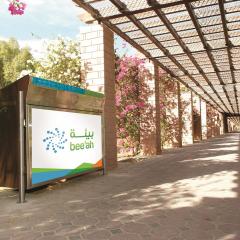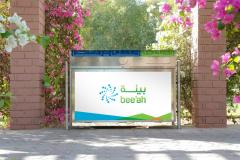Young Generations Declare Recycling Is The Way To Go
Bee’ah, the Middle East’s sustainability pioneer, has unveiled its findings from an exclusive in-depth study conducted on waste segregation perceptions and practices among Sharjah’s higher education community, shedding new light on the sustainability ambitions of the UAE’s youth. Undertaken by Bee’ah’s Environmental Consultancy & Services arm, the study gathered responses from a healthy sample of the student population, enrolled at Sharjah’s premier educational institutions, including Sharjah University, the American University of Sharjah and the Police Academy. From adopting an active approach to recycling, to awareness in waste segregation, the study has yielded results that indicate a positive outlook towards sustainability initiatives among students in Sharjah.
HE Khaled Al Huraimel, Group CEO of Bee’ah, said, “As a sustainability leader, we consider it our obligation to contribute to environmental research, understand the socio-environmental landscape in the UAE, and advise on policies and initiatives that can best guide the country in the right direction. Analysing the perceptions and practices of our youth is imperative to this process. We are proud of our Environmental Consultancy unit’s efforts in uncovering and presenting these findings. The results are inspirational and renew our optimism in our Nation’s future, while offering valuable insights to further engage with, inspire, and encourage environmental activism among our students.”
The Environmental Consultancy & Services arm of Bee’ah conducted the student survey, to measure the correlation between community outreach and waste segregation within university campuses in Sharjah. The most enlightening finding, from the company’s perspective, was that 88.8% of respondents had a positive understanding on the importance of waste recycling for the protection of the environment. It was also found that 55.1% of the respondents walk long distances to reach recycling bins, and 47.2% agree that recycling bins are easy to use, thus embracing the practice of waste segregation. It is notable that 49.5% acknowledge incentivisation as a key step towards encouraging recycling.
Furthermore, students also emphasized on the importance of university-hosted sustainability programmes and ongoing awareness sessions on waste segregation and recycling, as they believe that such efforts can yield even better results. Improvements in recycling programmes, increasing the number of 3-stream bins and Wi-Fi enabled bins on campuses, introducing easy colour coding for bins, and other such opportunities were also identified by Bee’ah through the survey results and site visits to the campuses of interest.
Of those who responded to the survey, 88% were aged below 25, with both genders equally represented at 45% being male, and 55% female. In terms of academic disciplines, engineering constituted the majority of the sample at 47.9%, followed by health sciences, arts, and law enforcement constituting 21.9%, 17.1%, and 12.4, respectively. 84.9% were confirmed to have been residents of the UAE for at least the past 5 years.
Mohammed Al Hosani, Managing Director of Environmental Consultancy & Services at Bee’ah, commented, “Our ongoing efforts in environmental sustainability research and development have uncovered insights on environmental awareness, and on what drives our community to engage in activities such as recycling. We pass on these findings and recommendations to Bee’ah’s operations unit, Tandeef, to dispense services accordingly; and to our educational arm, the Bee’ah School of Environment, to revise education and awareness programmes. Our various collaborations with academia, municipalities, private sector entities and others, allow us to advise them on improving their sustainability offerings, while helping us to understand how we can contribute to their success.”
The results of the survey were presented by Mr. Hosani, during Bee’ah’s participation at the 12th edition of Innovation Arabia, an annual scientific and professional development conference organized by the Hamdan Bin Mohammed Smart University (HBMSU). The conference provided a valuable opportunity for Bee’ah to present its findings, and to support HBMSU’s commitment to generating and sharing research, collaborative projects, best practices, and success stories.
Apart from conducting research, Bee’ah has implemented a number of initiatives focused on research and environmental education, such as the Bee’ah School of Environment, to achieve its zero-waste vision. Reaching over 200,000 students across the UAE, the programme has played an instrumental role in helping Bee’ah achieve 76% waste diversion in Sharjah, which is also the highest diversion rate in the Middle East. Currently, Bee’ah is also building the UAE’s first waste-to-energy plant in partnership with Masdar, the completion of which will help Sharjah become the first zero-waste city in the Middle East by 2021.








